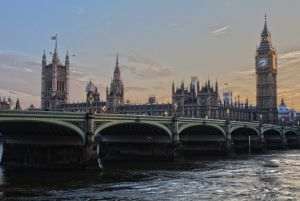Germany and Austria are increasingly taking a clear view of the threat posed by the Russian Federation, and the discourse of officials in the two countries indicates a profound transformation in the strategic mentality of Central Europe. In Germany, the president of the Bundeswehr Association, Andre Wustner, launched, in a debate organized by the German website BR 24, a firm and unequivocal appeal to the political class in Berlin, warning that the country no longer has the luxury of time or hesitation. "We are waiting for a plan,” he declared publicly, with direct reference to Defense Minister Boris Pistorius, adding: "The federal government has promised to build the most powerful conventional army in Europe, and Boris Pistorius must now show how he will achieve this. Time is running out.”
He believes that even with new legislative instruments, such as the law to accelerate military procurement and infrastructure, what is missing is clear direction and a firm will to implement it. "We are waiting for the plan that shows how the Bundeswehr will be made capable of defending itself by 2029 - the year in which Pistorius believes Putin will become a direct threat,” warned Andre Wustner, adding that without a significant jump in the number of professional soldiers - from 170,000 to 260,000 - Germany will not be able to meet future challenges.
His criticism does not stop at the government. Wustner also draws attention to the passivity of civil society. "We need a society that is willing to defend itself,” he stressed, warning that "whoever is capable of defending himself is a deterrent; whoever is not is an invitation to aggression.” In other words, in the face of an increasingly aggressive Russia, it is not enough to hope for peace; you have to be prepared for war, precisely to avoid it.
Meanwhile, neighboring Austria, although declared neutral by the constitution, is beginning to reposition itself strategically. Beate Meinl-Reisinger, foreign minister and leader of the liberal Neos party, said in an interview with the German daily Welt: "Neutrality alone does not protect us.” She acknowledges that, faced with an increasingly dangerous international context, Austria must invest in defense and reassess its strategic partnerships. "I am open to a public debate on the future of our security and defense policy,” said Beate Meinl-Reisinger, who, although she acknowledges that there is currently no political majority for NATO membership, emphasizes that "such a discussion can be very fruitful.”
Meinl-Reisinger has no illusions about Russia. "Ukraine wants peace. Russia doesn't,” Austria's foreign minister made it clear, adding that "if Putin were truly interested in peace, he would start negotiations for a ceasefire.” In reality, she says, the Kremlin shows no sign of wanting anything more than continued destruction. "At some point, the coffins will pile up in Russia. And the disastrous economic situation makes this war increasingly difficult for the Kremlin to sustain. Putin knows that time is not on his side, and that is why he is waging it with brutal intensity,” Beate Meinl-Reisinger told the cited source.
Austria, in her view, can no longer afford the comfort of naive neutrality. "We cannot sit back and say: if we do not harm anyone, we will not be harmed either. That would be naive," said the foreign minister from Vienna, reaffirming that Austria must actively contribute to European security and assume a more prominent role in peacekeeping and collective defense missions. As can be seen, Germany hesitates between the declarative will and the practical inability to build an army ready for the future. Austria, on the other hand, is beginning to understand that neutrality is not a guarantee, but a state that must be actively supported, with investments, political will and strategic commitment. What unites them, however, is the clear recognition that Russia is no longer a dialogue partner, but a long-term threat. Both countries are faced with a historic choice: to continue to rely on illusions or to prepare for the harsh reality of a future in which security is not guaranteed, but earned through determination, cohesion and credible force.

















































